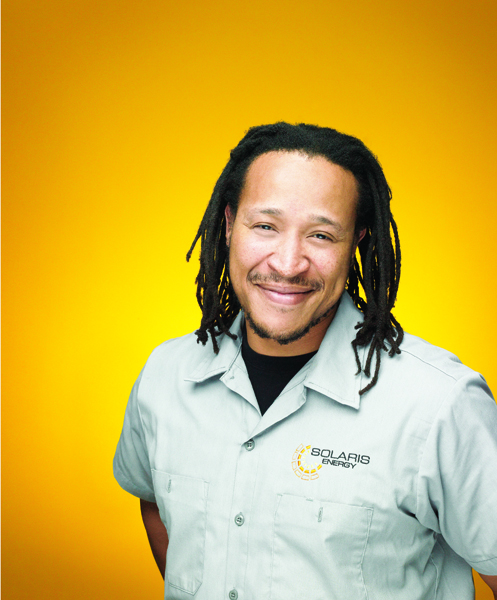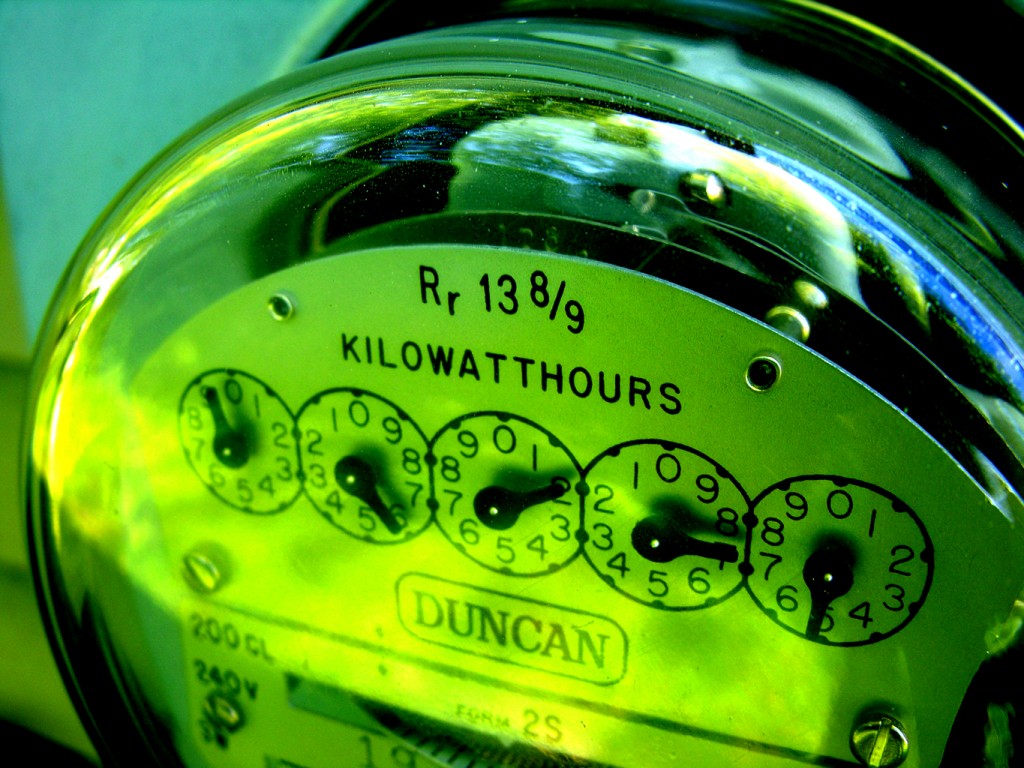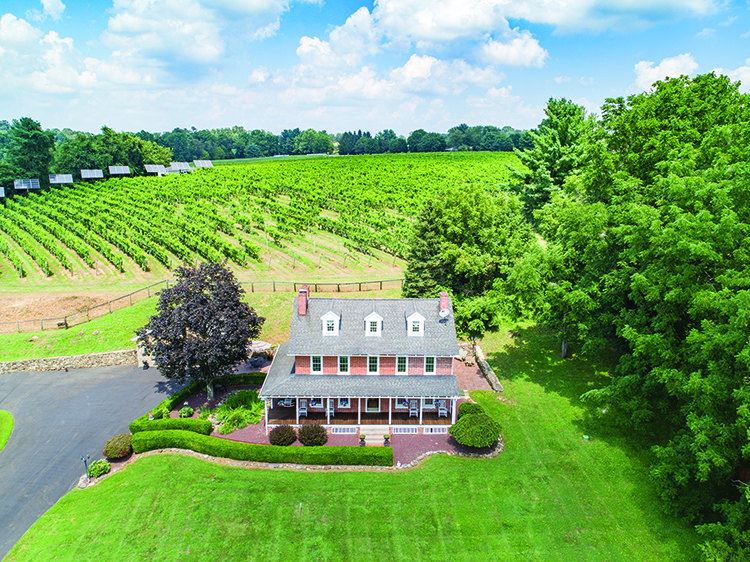 Alternative energy entrepreneur Mike McKinley talks about what solar can do for Philly
Alternative energy entrepreneur Mike McKinley talks about what solar can do for Philly
by Dana Henry
Mike Mckinley was a cognitive neuroscientist working for Pfizer in southern California when the lights went out. Utility spikes caused by the deregulations of Enron and Reliant Energy (the same will happen with PECO in 2010) had led to a series of rolling blackouts better known as the California Electricity Crisis of 2000. When the lights came back on, Mike had electric bills of over $300 a month for a 750 square foot apartment. He also had a new outlook. The Philadelphia native and graduate of Central High School decided it was time for a career change. He commuted to New York and went back to school for solar technology.
Mike’s instincts were spot-on. According to Solarbuzz, an international solar energy research and consulting firm, the number of solar installations worldwide continues to grow 20 to 25 percent annually. As increased demand drives prices down, new legislation has spurred rapidly progressive changes in federal and state incentives, grants and loan programs, making solar more popular than ever. In the United States, the number of solar manufacturing companies increased by more than 30 percent from 2005 to 2006, according to the Energy Information Administration. Here in Philly, Mike’s three-year-old, full-service photovoltaic solar installation company, Solaris Energy, stands among Eos Energy, Solardelphia and U.S. Green Home in bringing us solar energy solutions. But providing is only part of the process. Education and political engagement push our energy independence forward, and to that end, Mike is also an activist. He’s worked with PennFuture on promoting energy-wise legislation, attends clean energy conferences in Harrisburg and has founded the energy-wise initiative No Libs Green. And Mike talks—to audiences at Mixed Greens (a speaker series of the Alliance for a Sustainable Future-hosted STUDIOETC in Exton), at public events, to housing and condo associations, and to just about anyone else with a question.
Between a job in Ambler and another out in the ‘burbs, Mike found time to roll into Soy Café in Northern Liberties and talk with Grid about what this blossoming industry means for Philadelphia.
When did you know that solar was your calling?
My first science project, as a kid, was a solar panel hooked into a fan. As an adult, I read the first IPCC (Intergovernmental Panel on Climate Change) report and like a lot of people, especially scientists, I saw a challenge unlike any we’ve seen before and a complacency about said challenge. I figured you can talk about it or you can do it, so I took the challenge on.
What drew you to the activism side of alternative energy?
I worked in a nonprofit for a little while in a small program delivering food. From that I learned that as much as I hate politics and the political arena, it’s our duty as citizens to get involved; it’s our right to get involved. I did my research. I looked into what was going on in the state and I figured, why not start at home?
What drew you to solar?
Too many things were pointing in that direction. In Pennsylvania we have an economic crisis that’s been happening for decades, and we live in a coal state. Coal drives the energy—not only for us, but we export energy fueled by coal to other states and it’s contributed to increased asthma and other problems that are too numerous to mention. We have a crime problem because these kids don’t know what to do with themselves. If they actually had something to do that was futuristic and forward-thinking and responsible, think about where these kids lives would go. It’s not really just about people saving money; it’s not just about climate change; it’s not just about our economy in Philadelphia—not to mention nationally. It’s about all of it. Ultimately, all these things lead to our survival, from climate change—which can eradicate us as a species—to even our day-to-day worries as people. It’s not a panacea. There’s going to need to be reworking on the legislative level, the infrastructure level, even our outlook and our own personal habits. But the moment you realize that something like this is possible is the moment you realize you’ve got to get off your ass and do something.
What’s changed since you’ve been in the alternative energy business?
Over the last three years, I’ve seen wind farms go up. I’ve seen a small company, Community Energy, blossom into PECO Wind. I’ve seen, finally, the passage of some smart legislation that gives people some choices in how they use energy. More importantly, despite our financial crisis, I see people thinking about a cleaner, greener, more responsible world and a more responsible economy. Philadelphia has [elected] a mayor who actually knows something about climate change and has been proactive about promoting legislation and about educating himself on the processes and about what he needs to do to establish the infrastructure. The IBEW [International Brotherhood of Electrical Workers] is starting to implement programs to teach their people about solar. Plumbers unions are starting to take it on. I’m tickled just thinking about what the next few years can bring.
What advice do you have for someone who wants to get started in the solar business?
Get your education. At our company, education is first and foremost. It’s going to keep you safe; it’s going to keep you well-versed.One thing that I want to avoid is what happened with the first solar boom [in the ’70s]. People took a little bit of information,
and ran a long way with it, and I think that it hurt the industry. So now I think that we should be very careful and promote education first. Professional development in solar is a daily activity. Get on the SEIA website [Solar Energy Industry Association: www.seia.org], then find a class.
There’s also a lot of anxiety out there. People are wondering, “So when is this all going to happen?”
That’s the question we should be asking our legislators. That’s the question we should be yelling out at City Council meetings. That’s the question we should be asking our senators and representatives. Don’t ask me. Ask them. They’re the ones holding the purse strings. They’re the ones who give incentives to coal-fired electricity. The same incentives can be applied directly or indirectly to allow you the choice you want to make.
So what does this mean for Philadelphians?
We have a very unique opportunity. We as a city have always been green; we’ve always had a naturalistic bent. All we need now is the will, and the political will. I’d say it starts at home, starts with switching off your lights. Starts with really looking at your PECO bill and not just the number in the upper right hand corner. Take a look at how much electricity you’re using. Take a look at how much gas you’re using. Be aware of your own habits and change them. Next, go to your legislators and make them aware of their habits. With the right legislation, the right will and the right activism, we can be the greenest city; and more than that ,we can become a model for other cities.
What does this mean for our independence?
Let’s say, out of 300 issues of the Daily News, 20 have something to do with PECO or PGW—either rate hikes, shutoffs [or] transformer issues. What if we made our own energy for ourselves from a completely renewable source? [It would be] like making our own water. There’s something to be said about any independence, and energy independence most strongly.




KYW reported that Mr. McKinely was arrested for fraud in the amount of $80,000. I am amazed that there is no follow-up article to the story, given the circumstances.